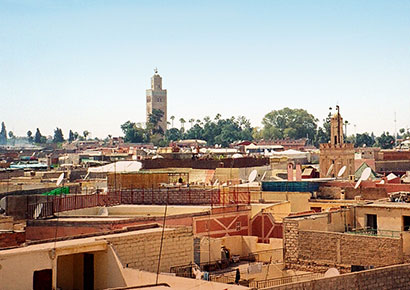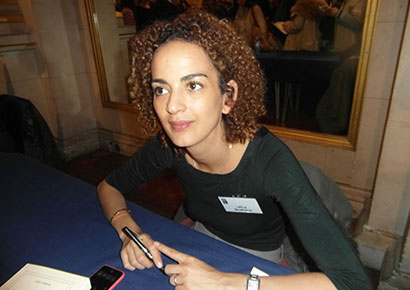Outrage grows over “medieval” arrest of teen girls for kissing
 As details emerge of the abuse faced by two girls arrested for kissing in Morocco, a leading writer has condemned the country’s “medieval” laws.
As details emerge of the abuse faced by two girls arrested for kissing in Morocco, a leading writer has condemned the country’s “medieval” laws.
On Friday, a number of human rights groups slammed the prosecution of the girls, who are both minors, known only as Sanaa (16) and Hajar (17).
According to reports, the girls were videoed on a mobile phone by a neighbour or relative while kissing and hugging on the roof of a house in Marrakesh.
The Moroccan Association of Human Rights said that the footage or images were sent to the family of one of the girls, who shared it with the police. The two were arrested on the same day.
It’s since been revealed that Sanaa and Hajar were badly beaten by their families and were detained in an adult prison, instead of a juvenile facility. They were also denied food by the police for three days.
One of the girls is said to have been forced to sign a statement (presumably admitting guilt) before they were released.
Male and female same-sex sexual activity is illegal in Morocco under article 489 of the penal code, with penalties ranging from six months to three years in jail, as well as the imposition of fines.
The Moroccan Association of Human Rights said that it will provide legal support for the girls.
Responding to the plight of the teens, Moroccan-born writer Leila Slimani urged her compatriots to rebel against the country’s “political system based on disdain, humiliation and the abuse of power”.
Slimani won France’s top literary prize, the Goncourt, on Thursday, for her novel Chanson Douce (Sweet Song). She became only the seventh woman to have won the Goncourt in 112 years.

Leila Slimani
She told France Inter Radio: “The laws in Morocco are completely medieval, completely disconnected from reality … they ban sex outside marriage, homosexuality and adultery.”
Slimani added: “We shouldn’t be hypocrites. Moroccans have sex lives outside marriage, and it’s good that there are homosexuals.”
Prosecution of and mob attacks against LGBT people are not uncommon in Morocco. According to Human Rights Watch, Moroccan courts often rely on confessions coerced by the police to convict people accused of homosexuality.
Leave a Reply